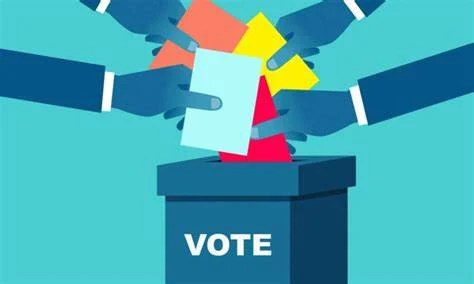-TOWARDS 2027-
Navigating Nigeria’s
Road to 2027: Strategic Programs and Emerging Political Shifts
As Nigeria approaches its 2027 general elections,
a wave of strategic planning, civic engagement, and political repositioning is
reshaping the democratic space. Stakeholders ranging from electoral
institutions to civil society groups are laying the groundwork for a more
transparent and inclusive process. Here’s an expanded look at key developments
and initiatives gaining traction across the country.
Strengthening Electoral
Institutions: INEC’s Early Moves
The Independent
National Electoral Commission (INEC) is already steering the
preparatory ship well ahead of schedule, with robust internal mechanisms being
activated:
· Election Project Plan Committee (EPPC): This
newly inaugurated body is crafting a comprehensive electoral blueprint to guide
logistics, technology integration, and stakeholder coordination for 2027.
· Strategic Timelines: INEC
is prioritizing the early release of planning documents to avoid last-minute
implementation gaps, drawing lessons from the 2023 electoral cycle.
· Stakeholder Consultation Framework: A new emphasis is being placed on collaborative engagement with political parties, civil society, and security agencies to foster inclusivity and conflict prevention.
These steps reflect a broader ambition: to
deliver an election that is not only technically sound but widely trusted.
Civic Engagement on the Rise:
CSOs Empower the Electorate
Prominent Civil
Society Organisations (CSOs) are
intensifying voter education and electoral advocacy, recognizing that citizen
action will be pivotal in 2027:
· Voter Sensitization Drives: Organizations
like the Centre for Democracy and Development
(CDD) and WFD are
holding town halls, social media campaigns, and policy workshops to inform
voters about their democratic rights.
· Mandate Protection Initiatives: CSOs
are training poll observers and whistleblowers to safeguard voting integrity
and reduce incidences of electoral malpractice.
· Electoral Reform Advocacy:
Groups are lobbying lawmakers to adopt reforms proposed by the Justice Mohammed Uwais committee, including constitutional changes to empower INEC and
curb executive interference.
Their efforts underscore a growing
consciousness among citizens to defend their votes and demand performance from
their leaders.
Public Dialogue Platforms:
SWEGOP Sparks Nationwide Discourse
The media’s role in shaping electoral
narratives remains critical. A recent example is the South West Guild of Online Publishers (SWEGOP) hosting its 9th Anniversary Lecture in Ibadan:
· Thought Leadership Forums: The
event featured robust discussions on improving electoral transparency through
digital result transmission and civic oversight.
· Youth and Gender Inclusion: Activists
pushed for increased participation of marginalized groups, especially young
Nigerians and women, in political decision-making.
· Media as Watchdog: Seasoned
journalists and academics, including Prof.
Adeolu Akande, emphasized the
press’s responsibility to counter misinformation and demand issue-based
campaigning.
SWEGOP’s forum reflects a growing appetite
for non-partisan analysis and participatory governance.
Political Realignments: Early
Signals of 2027 Contest
The political terrain is already shifting,
with both the ruling party and opposition beginning to define their strategies:
· Tinubu’s Second-Term Ambitions: The
incumbent president has shown signs of a re-election bid under the All Progressives Congress (APC), sparking internal consultations and policy reviews.
· Emerging Opposition Alliance: Former
Vice President Atiku Abubakar and Peter
Obi are reportedly forming a united front under the Africa Democratic Congress, aiming to
consolidate their base and mount a formidable challenge.
· Fresh Presidential Hopefuls: Names
like Rotimi Amaechi and Rabiu Kwankwaso are being
floated within political circles, hinting at a vibrant and potentially
unpredictable race.
These movements point to a dynamic and
possibly transformative election cycle.
Looking Ahead: Expectations
and Challenges
As the journey toward 2027 continues, key
developments to watch include:
· Party Primaries and Candidate Declarations: These
will shape the political messaging and alliances ahead.
· Expanded Civic Literacy Campaigns: A
push to combat voter apathy and misinformation is expected to intensify.
· Electoral Reform Debates in the National
Assembly: Critical conversations on constitutional amendments
and electoral laws are gaining urgency.
· Scrutiny of Governance Performance: Citizens
and watchdogs are demanding accountability, with 2023 promises under review.



No comments:
Post a Comment